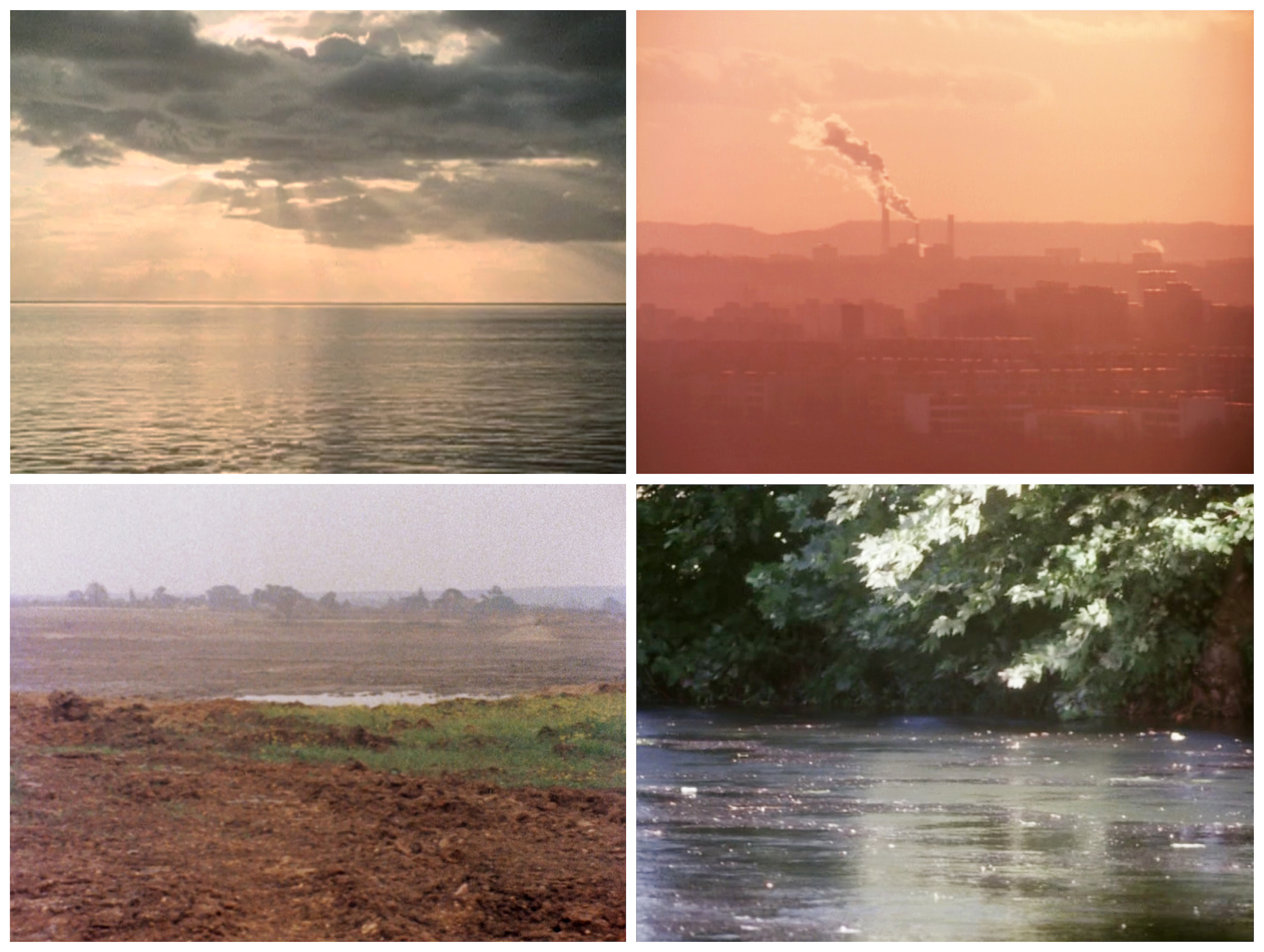Free Press
Stephen Sprott
World Cinema

For a very long time I’ve been pickpocketing very short bits of film. I look for shots that are a bit free-floating, slightly disconnected from the rest of the story, what one calls ‘cutaway’ shots. That’s what they are asking for, to be cut out, set loose. And now that I have lots and lots of them, it’s interesting to see how they behave with one another. One can splice them together in any number of ways and find that they are quite expressive. Cutaway shots are peripheral by nature. They suggest the environment in which the story takes place and therefore consist largely of streets, houses, storefronts, cars, cityscapes, landscapes, sunsets. Cutaways show us what the weather’s like. Dark clouds converge, rain falls, and then they part. Or course these things help convey the mood of the story being told and they give a kind of proof that this particular fiction happened in a certain place in the world and at a certain time. On their own though, shorn of their romance films, sunsets are suddenly free to just be sunsets. They join a near endless series of vignettes of the planet conducting it’s affairs. Sometimes these shots are rapturous, reveling in the vast and ephemeral glories of light and shadow, color and texture. Other shots are dim and drab, catching the workaday rhythms of life. And sometimes they are foreboding. Plumes of smoke, parched land, floods, industrial waste. When they come from films now decades old, watching them feels like scrolling backwards through countless alarming news headlines. One despairs to consider this and to imagine the dystopian scenes that loom ahead. Nonetheless, all of these fragments represent discrete moments in the world that can never again be repeated. Each one like a single breath.
Stephen Sprott
February, 2024
Collage by Stephen Sprott


 Facebook
Facebook Twitter
Twitter